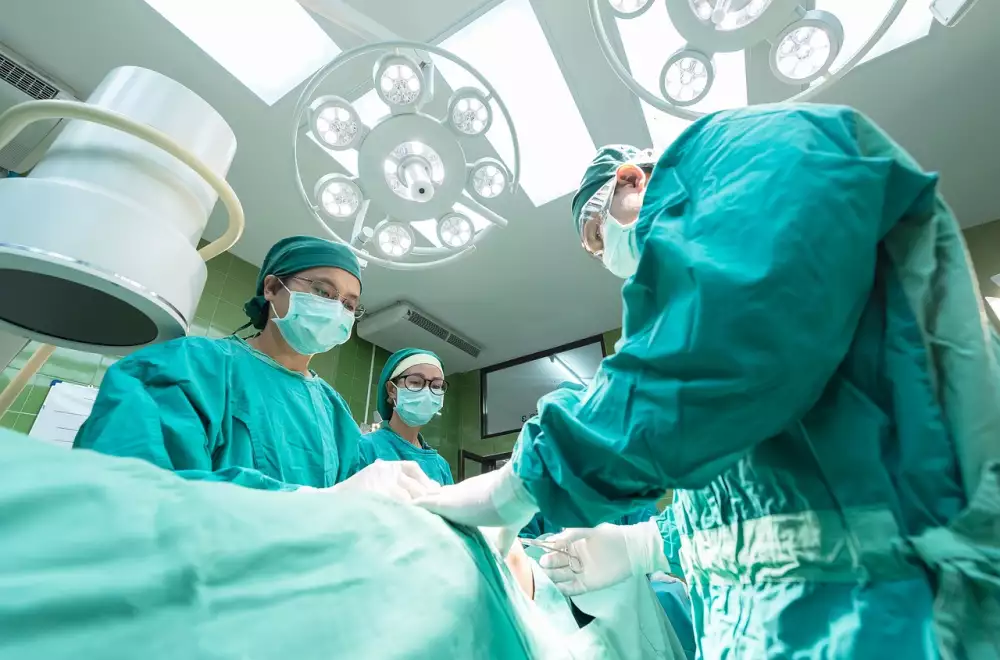Hypospadias: Diagnosis, symptoms and treatment of this medical disorder

- What is hypospadias?
- Causes of hypospadias
- Symptoms and Diagnosis of Hypospadias
- Treatment options for hypospadias
- Complications associated with hypospadias
- Prevention of hypospadias
- Support and counselling for families with a child with hypospadias
- Hints for hypospadias patients
- The latest research and treatments for hypospadias
What is hypospadias?
Hypospadias is a congenital developmental disorder that affects the male genitalia. It is a condition in which the urethra does not end at the tip of the penis, but opens at or below the base of the glans. This anatomical abnormality can be of varying severity and take different forms. Hypospadias is a relatively common disorder in newborns and its exact cause is not fully understood.
Causes of hypospadias
The causes of hypospadias are not yet clearly defined. Genetic factors are thought to play an important role, although specific genes associated with the disorder have not yet been identified. Other possible causes include hormonal imbalances during pregnancy, the use of certain medications or exposure to chemicals. Research in this area is ongoing to better understand the exact causes of hypospadias.
Symptoms and Diagnosis of Hypospadias
The symptoms of hypospadias are usually manifested by an unusual positioning of the urethra on the underside of the penis. This condition can cause problems during urination and also aesthetic inconvenience. Diagnosis of hypospadias includes physical examination, ultrasound examination and other specific tests. It is important that hypospadias be diagnosed as soon as possible so that appropriate treatment can be initiated.
Treatment options for hypospadias
Treatment options for hypospadias depend on the severity and type of disorder. Most cases require surgical intervention, which is done in early childhood. The goal of surgery is to correct the urethral deformity and restore the normal shape of the penis. There are different techniques and procedures that can be used depending on the specific case. After the surgery, careful post-operative care and monitoring of the patient is necessary. For some patients, a second surgical procedure may be necessary for best results. It is important to consult with a specialist to select the most appropriate treatment method for each individual with hypospadias.
Complications associated with hypospadias
Complications associated with hypospadias may include problems with urination, such as an inability to control the flow of urine or difficulty standing. Another complication may be sexual dysfunction, such as difficulty getting an erection or painful intercourse. Urinary tract infections are also a common complication of hypospadias. Rarer complications include abnormal penis shape or fertility problems in adulthood. It is important that patients with hypospadias are carefully monitored and treated by a specialist team to minimize these complications.
Prevention of hypospadias
Prevention of hypospadias is aimed at minimizing the risk factors associated with this disorder. Some of the measures that may be helpful include:
- Limit exposure to chemicals: avoid contact with pesticides, herbicides, and other toxic substances that may contribute to hypospadias.
- Healthy maternal lifestyle: pregnant women should follow a balanced diet, avoid smoking and alcohol, and exercise regularly. These can reduce the risk of fetal hypospadias.
- Previous family history: If there is a family history of hypospadias, it is advisable to inform the doctor. This will allow monitoring and preventive measures to be taken.
- Proper care of the newborn: It is important to ensure proper hygiene of the genital area while changing the baby. Gentle practice can minimize the risk of infections and complications.
Prevention is the key to minimizing the occurrence of hypospadias. Awareness among parents and health professionals is essential to identify risk factors and take appropriate action.
Support and counselling for families with a child with hypospadias
It is important for families with a child with hypospadias to get support and counselling. There are organisations and groups that specialise in this medical disorder and provide information and help. Parents can find support from other families who have gone through the same problem. It is also possible to seek professional help from doctors, psychologists or therapists who have experience with hypospadias. It is important to share your concerns and questions with other people who can provide support and understanding in this difficult situation.
Hints for hypospadias patients
The outlook for patients with hypospadias has improved in recent years due to advances in treatments and surgical techniques. Modern surgeries make it possible to achieve aesthetically and functionally satisfactory results. Psychological support and counselling are also an important part of treatment to help patients and their families accept and manage this medical disorder. It is important that patients with hypospadias have access to an expert medical team to provide comprehensive care and information about treatment options and long-term follow-up.
The latest research and treatments for hypospadias
The latest research is focused on finding new treatments for hypospadias. One approach is the use of tissue engineering, which allows the creation of an artificial urethra using the patient's own tissue. Another option is the use of growth factors and genetic therapy to promote healing after surgery. Research is also investigating the genetic predisposition to hypospadias and looking for links to other health problems. These new findings may lead to advances in the treatment of hypospadias and improved living conditions for affected individuals.
Conclusion: awareness and education about hypospadias is crucial to improving the lives of patients with this medical disorder. It is important that the public, healthcare professionals and parents are informed about the symptoms, diagnosis and treatment of hypospadias. Education can help to remove the stigma associated with the disorder and provide support for families of affected children. Research and the development of new treatments are also essential for further progress in the field of hypospadias. By working together, we can ensure better care and quality of life for hypospadias patients.
Published: 10. 01. 2024
Category: Medicine



